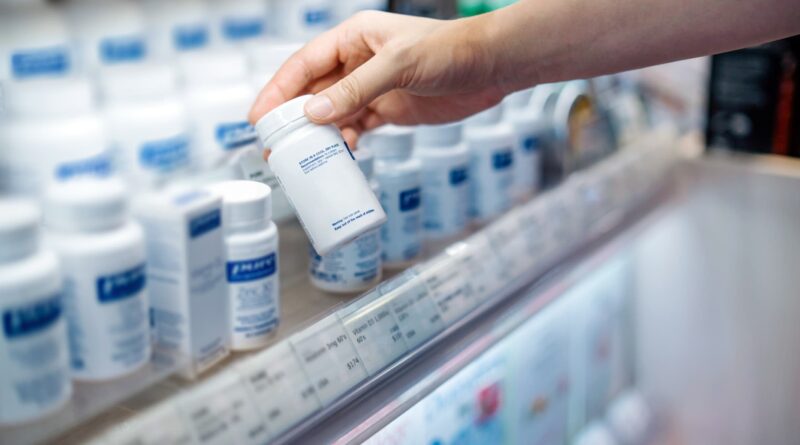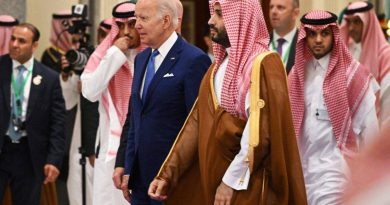U.S. to impose 100% tariff on branded, patented drugs unless firms build plants locally, Trump says

Shelf of pharmaceutical products.
D3sign | Moment | Getty Images
President Donald Trump announced Thursday that the U.S. will impose a 100% tariff on “any branded or patented Pharmaceutical Product” entering the country from Oct. 1.
The measure will not apply to companies building drug manufacturing plants in the U.S., Trump said. He added that the exemption covers projects where construction has started, including sites that have broken ground or are under construction.
“There will, therefore, be no Tariff on these Pharmaceutical Products if construction has started,” Trump said in a post on Truth Social.
Branded or patented pharmaceutical products are drugs sold under trade names and protected by patents or other intellectual property, which block generic competition until those protections expire.
The announcement came as Trump also unveiled a 25% duty on heavy trucks and a 50% levy on “all Kitchen Cabinets, Bathroom Vanities, and associated products,” which will also start on Oct. 1.
The Trump administration in April initiated a so-called Section 232 investigation into pharmaceutical products, which allows the Secretary of Commerce to examine the impact of imports on national security. The president similarly used that power to impose tariffs on other goods, such as cars and aluminum.
The tariffs deal a long-awaited blow to pharmaceutical companies, many of which have pushed back and warned that the levies could drive up costs, deter investments in the U.S. and disrupt the drug supply chain, ultimately putting patients at risk.
But the levies are lower than the up to 250% tariff rate on pharmaceuticals that Trump floated in August in an interview with CNBC’s “Squawk Box.” Trump said he would initially impose a “small tariff” on pharmaceuticals, but then in a year to a year and a half “maximum,” he will raise that rate to 150% and then 250%.
The industry is already navigating the fallout from Trump’s proposed drug pricing policies, which drugmakers argue threaten both their bottom lines and their capacity to invest in research and development, and a massive overhaul at the Department of Health and Human Services under prominent vaccine skeptic Robert F. Kennedy Jr.
It’s the latest development in Trump’s evolving tariff policy, which aims to bring back manufacturing in the U.S.
The new duties follow the launch of fresh national security investigations announced on Wednesday into imports of robotics, industrial machinery, and medical devices.
The latest probes by the Department of Commerce expand the list of goods that could face higher tariffs to include personal protective equipment such as surgical masks, N95 respirators, gloves and other medical consumables, including syringes and needles.
Any new duties resulting from the sector-specific probes would be stacked on top of Trump’s country-specific tariffs, though the European Union and Japan have reached agreements that could shield them from extra levies.
— CNBC’s Annika Kim Constantino contributed to this report.
Source – Middle east monitor




